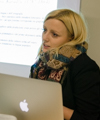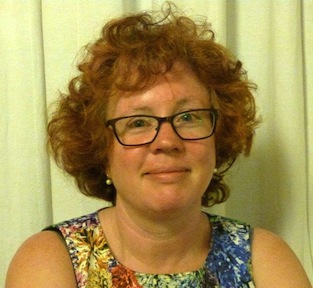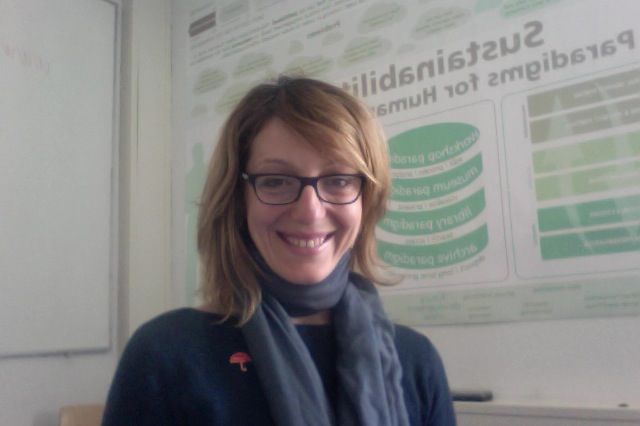Studying at the University of Verona
Here you can find information on the organisational aspects of the Programme, lecture timetables, learning activities and useful contact details for your time at the University, from enrolment to graduation.
Academic calendar
The academic calendar shows the deadlines and scheduled events that are relevant to students, teaching and technical-administrative staff of the University. Public holidays and University closures are also indicated. The academic year normally begins on 1 October each year and ends on 30 September of the following year.
Course calendar
The Academic Calendar sets out the degree programme lecture and exam timetables, as well as the relevant university closure dates..
| Period | From | To |
|---|---|---|
| Semester 1 | Oct 2, 2017 | Jan 20, 2018 |
| Semester 2 | Feb 26, 2018 | Jun 9, 2018 |
| Session | From | To |
|---|---|---|
| Winter session | Jan 22, 2018 | Feb 24, 2018 |
| Summer session | Jun 11, 2018 | Jul 28, 2018 |
| Autumn session | Aug 27, 2018 | Sep 22, 2018 |
| Session | From | To |
|---|---|---|
| LAUREE LINGUE - sessione autunnale a.a. 2016/2017 | Dec 18, 2017 | Dec 21, 2017 |
| LAUREE LINGUE - sessione invernale a.a. 2016/2017 | Mar 23, 2018 | Mar 29, 2018 |
| LAUREE LINGUE - sessione estiva | Jul 16, 2018 | Jul 21, 2018 |
| LAUREE LINGUE - sessione autunnale | Nov 12, 2018 | Nov 17, 2018 |
| LAUREE LINGUE - sessione invernale | Apr 12, 2019 | Apr 18, 2019 |
| Period | From | To |
|---|---|---|
| All Saints Day | Nov 1, 2017 | Nov 1, 2017 |
| Immaculate Conception | Dec 8, 2017 | Dec 8, 2017 |
| Christmas break | Dec 22, 2017 | Jan 7, 2018 |
| Easter break | Mar 30, 2018 | Apr 3, 2018 |
| Liberation Day | Apr 25, 2018 | Apr 25, 2018 |
| Labour Day | May 1, 2018 | May 1, 2018 |
| Patron Saint Day | May 21, 2018 | May 21, 2018 |
| Republic Day | Jun 2, 2018 | Jun 2, 2018 |
| Summer break | Aug 13, 2018 | Aug 18, 2018 |
Exam calendar
Exam dates and rounds are managed by the relevant Foreign Languages and Literatures Teaching and Student Services Unit.
To view all the exam sessions available, please use the Exam dashboard on ESSE3.
If you forgot your login details or have problems logging in, please contact the relevant IT HelpDesk, or check the login details recovery web page.
Academic staff
 alessandro.bigardi@univr.it
alessandro.bigardi@univr.it

Bradas Marija
 marija.bradas@univr.it
marija.bradas@univr.it
 paolamaria.caleffi@univr.it
paolamaria.caleffi@univr.it
 veronica.gobbato@univr.it
veronica.gobbato@univr.it
 tiziana.mancinelli@univr.it
tiziana.mancinelli@univr.it
 sara.paolini@univr.it
sara.paolini@univr.it
 fabioantonio.scrignoli@univr.it
fabioantonio.scrignoli@univr.it
Study Plan
The Study Plan includes all modules, teaching and learning activities that each student will need to undertake during their time at the University.
Please select your Study Plan based on your enrollment year.
1° Year
| Modules | Credits | TAF | SSD |
|---|
1st foreign language2nd foreign language1st foreign literature2nd foreign literature2° Year activated in the A.Y. 2018/2019
| Modules | Credits | TAF | SSD |
|---|
1st foreign language2nd foreign language1st foreign literature2nd foreign literatureOne course to be chosen among the following3° Year activated in the A.Y. 2019/2020
| Modules | Credits | TAF | SSD |
|---|
1st foreign language2nd foreign languagePhilology of the first or second language| Modules | Credits | TAF | SSD |
|---|
1st foreign language2nd foreign language1st foreign literature2nd foreign literature| Modules | Credits | TAF | SSD |
|---|
1st foreign language2nd foreign language1st foreign literature2nd foreign literatureOne course to be chosen among the following| Modules | Credits | TAF | SSD |
|---|
1st foreign language2nd foreign languagePhilology of the first or second language| Modules | Credits | TAF | SSD |
|---|
Legend | Type of training activity (TTA)
TAF (Type of Educational Activity) All courses and activities are classified into different types of educational activities, indicated by a letter.
French Literature I (2017/2018)
Teaching code
4S00860
Credits
9
Coordinator
Language
Italian
Also offered in courses:
- French Literature (i) of the course Bachelor’s degree in Humanities
- French Literature I - PARTE I of the course Bachelor's degree in Foreign Languages and Literatures
- French Literature I - PARTE II of the course Bachelor's degree in Foreign Languages and Literatures
The teaching is organized as follows:
Learning outcomes
According to the periodization adopted in our French literature courses (first year: from 1850 to today; second year: Eighteenth century and first half of the Nineteenth century; third year: Sixteenth and Seventeenth centuries), this course introduces to French literature from 1850 to today, with in-depth analysis of some aspects, authors and works, in order to develop critical competences concerning various literary genres.
At the end of the course, students shall therefore acquire overall knowledge of the history of French literature from 1850 to today (main literary movements, authors and works), along with critical competences and the capacity of applying them to the analysis of texts belonging to different literary genres (poetry, narrative prose, essay, and theatre).
This course is divided in two parts because students attending courses that pertain to the Department of Cultures and Civilizations achieve 6 credits (part 1 of the course), whereas students attending courses that pertain to the Department of Foreign Languages and Literatures achieve 9 credits (part 1 and 2 of the course, the second part, which deals with contemporary literature, being conceived as the completion of the first).
Program
Part 1
An outline of the history of French literature and edition from 1850 to the 1970s with in-depth analysis of some emblematic aspects, authors and works, and a critical introduction to the study of texts belonging to different literary genres:
a. poetry, from Baudelaire to Surrealism;
b1. narrative prose, from Flaubert to Zola and Huysmans;
b2. the novel, from early XXth century to the “nouveau roman” and the OuLiPo;
c. essaysm, testimonial and creative writing, from Existentialism to Roland Barthes;
d. the theatre, from late XIXth century to the “nouveau théâtre”.
The reading of two entire literary works in French, among those presented during the course, is compulsory. Only students attending courses which pertain to the Department of Cultures and Civilizations may read the two chosen books in the Italian translation.
A detailed program with bibliographical information, as well as a selection of literary and critical texts, will be given at the beginning of the course.
Students attending the course will be given access to a mid-term paper (1/3 of the final evaluation): students will be required to comment on an excerpt from one of the literary discussed during the course (literary context and genre, thematic and stylistic analysis).
Students unable to attend the course are requested to contact the teacher. Some critical readings given at the beginning of the course are especially selected for them in order to prepare the final oral exam.
The course, as well as the mid-term paper and the final oral exam, are in Italian. All texts (literary excerpts and extended readings) must be in French, except the two books that, as already mentioned, only students attending courses which pertain to the Department of Cultures and Civilizations may choose to read in Italian.
Further instructions, concerning both the mid-term paper and the oral exam, will be given during the course.
Select bibliography
Paul Aron, Denis Saint-Jacques et Alain Viala, Le dictionnaire du littéraire, Paris, Presses Universitaires de France, 2002.
Éric Bordas, Claire Barel-Moisan, Gilles Bonnet, Aude Déruelle et Christine Marcandier, L’analyse littéraire, 2e édition, Paris, Armand Colin, 2015.
Jean-Yves Mollier, Une autre histoire de l’édition française, Paris, La Fabrique Editions, 2015.
Lionello Sozzi (a cura di), Storia europea della letteratura francese. II. Dal Settecento all’età contemporanea, Torino, Einaudi, 2013.
Sandra Teroni (a cura di), Il romanzo francese del Novecento, Roma/Bari, Laterza, 2008.
Anne Ubersfeld, Les termes clés de l’analyse du théâtre, Paris, Seuil, 1996.
Alain Vaillant, La poésie. Initiation aux méthodes d’analyse des textes poétiques, Paris, Nathan, 1992.
Part 2
Part 2
An outline of contemporary French literature from 1980 to today, with particular regard to nowaday’s theatrical trends and to the developments and intercations of narrative prose and essayism:
a. an outline of contemporary French literature;
b. some voices: François Bon, Laurent Mauvignier, Maylis de Kerangal.
The reading of one entire literary work in French, among those presented during the course, is compulsory.
A detailed program with bibliographical information, as well as a selection of literary and critical texts, will be given at the beginning of the course.
Students unable to attend the course are requested to contact the teacher. Some critical readings given at the beginning of the course are especially selected for them in order to prepare the final oral exam.
The course and the final oral exam are in Italian. All texts (literary excerpts and extended readings) must be in French.
Further instructions concerning the oral exam will be given during the course.
Select bibliography
Paul Aron, Denis Saint-Jacques et Alain Viala, Le dictionnaire du littéraire, Paris, Presses Universitaires de France, 2002.
Éric Bordas, Claire Barel-Moisan, Gilles Bonnet, Aude Déruelle et Christine Marcandier, L’analyse littéraire, 2e édition, Paris, Armand Colin, 2015.
Joseph Danan, Entre théâtre et performance: la question du texte, Arles Actes Sud, 2013.
Jean-Yves Mollier, Une autre histoire de l’édition française, Paris, La Fabrique Editions, 2015.
Gianfranco Rubino (a cura di), Il romanzo francese contemporaneo, Roma/Bari, Laterza, 2012.
Lionello Sozzi (a cura di), Storia europea della letteratura francese. II. Dal Settecento all’età contemporanea, Torino, Einaudi, 2013.
Dominique Viart et Bruno Vercier, La littérature française au présent. Héritage, modernité, mutations, Paris, Bordas, 2005.
Bibliography
| Author | Title | Publishing house | Year | ISBN | Notes |
|---|---|---|---|---|---|
| Gianfranco Rubino (a cura di) | Il romanzo francese contemporeano | Laterza | 2012 | ||
| Dominique Viart, Bruno Vercier | La littérature française au présent | Bordas | 2005 | ||
| Lionello Sozzi (a cura di) | Storia europea della letteratura francese | Einaudi | 2013 |
Examination Methods
It must be rerembered that this course is divided in two parts because students attending courses that pertain to the Department of Cultures and Civilizations achieve 6 credits (part 1 of the course), whereas students attending courses that pertain to the Department of Foreign Languages and Literatures achieve 9 credits (part 1 and 2 of the course, the second part being conceived as the completion of the first).
For students attending the course who choose to present their mid-term paper, the final evaluation will be the result of:
a) mid-term paper (1/3 of the evaluation);
b) oral exam (2/3 of the evaluation).
For students unable to attend the course, the complete program will be discussed during the oral exam.
Type D and Type F activities
To discover all the teaching activities accredited by the foreign teaching college click here
Career prospects
Module/Programme news
News for students
There you will find information, resources and services useful during your time at the University (Student’s exam record, your study plan on ESSE3, Distance Learning courses, university email account, office forms, administrative procedures, etc.). You can log into MyUnivr with your GIA login details: only in this way will you be able to receive notification of all the notices from your teachers and your secretariat via email and soon also via the Univr app.
Student login and resources
Assegnazione tutore
Attività accreditate D/F
Calendario didattico dettagliato
Cambio lingua curriculare
Competenze informatiche
Competenze linguistiche (prima e seconda lingua)
Competenze linguistiche in triennale (terza lingua CFU F)
Compilazione del piano didattico
Corso di Lingua portoghese
Erasmus+ e altre esperienze all'estero
Linguistic training CLA
Graduation
List of theses and work experience proposals
| Stage | Research area |
|---|---|
| PROGETTO MAMBRINO Stage per bibliografia | Various topics |
Stage e tirocini
Nel piano didattico della laurea triennale in Lingue e culture per l’editoria (L11 ED) è previsto un tirocinio/stage obbligatorio (CFU 6).
Le attività di stage sono finalizzate a far acquisire allo studente una conoscenza diretta in settori di particolare interesse per l’inserimento nel mondo del lavoro e per l’acquisizione di abilità professionali specifiche.
Le attività di stage sono svolte sotto la diretta responsabilità di un singolo docente presso studi professionali, enti della pubblica amministrazione, aziende accreditate dall’Ateneo veronese.
I crediti maturati in seguito ad attività di stage saranno attribuiti secondo quanto disposto nel dettaglio dal “Regolamento d’Ateneo per il riconoscimento dei crediti maturati negli stage universitari” vigente.
- Tutte le informazioni in merito agli stage per futuri studenti sono disponibili alla pagina Stage e tirocini.
- Tutte le informazioni in merito agli stage per studenti iscritti sono pubblicate in MyUnivr - come fare per - stage e tirocini.
- Tutte le informazioni in merito agli stage per le aziende sono disponili alla pagina Stage e tirocini per azienze.
Ulteriori informazioni al seguente link https://www.univr.it/it/i-nostri-servizi/gestione-carriere-studenti-lingue-e-letterature-straniere/stage-e-tirocini-lingue-e-letterature-straniere


 +39 045802 8465
+39 045802 8465




























